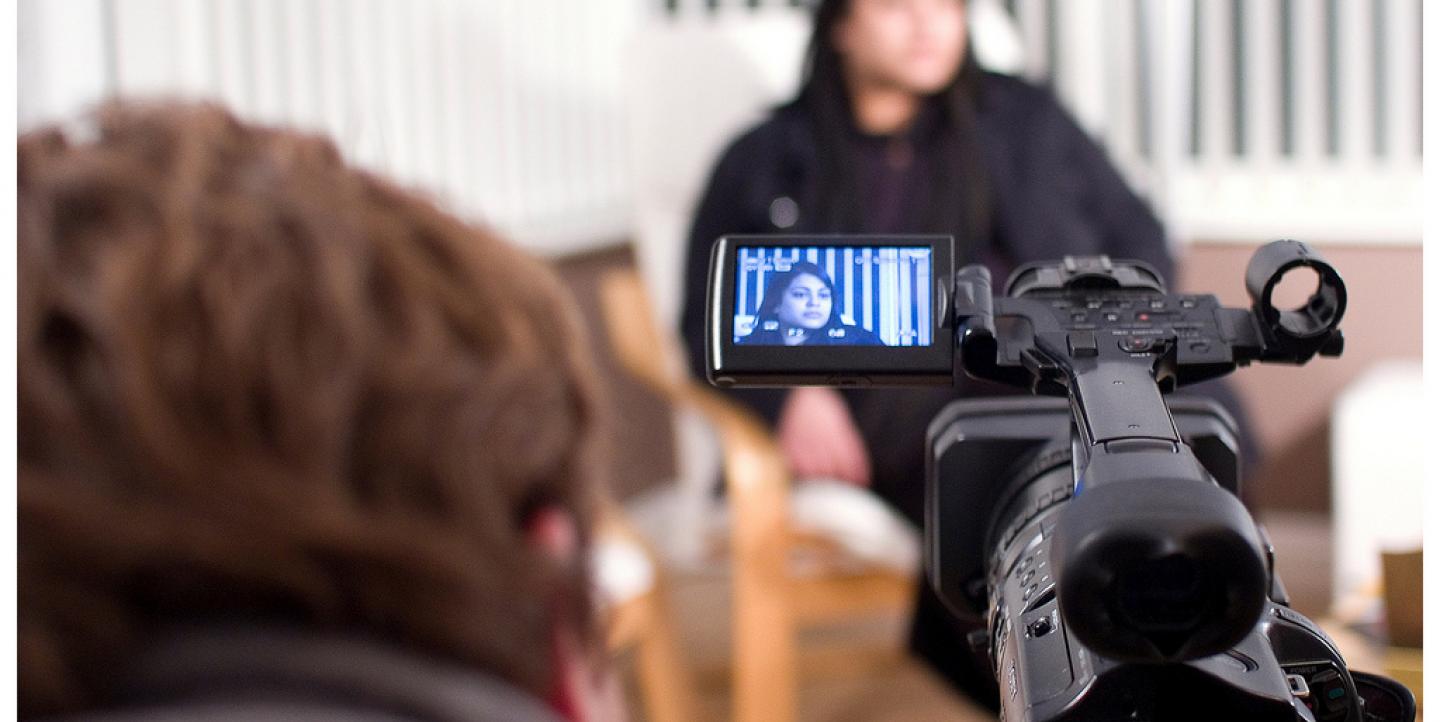During my career, I have interviewed dozens of people whose lives have been shattered by trauma. Each time, I agonized over the effect my reporting had on their suffering.
Did my journalistic mission justify probing into their private pain? Did I push too hard for details? Was I properly respectful and empathetic? Did anything positive come of it for them?
While covering the Balkan Wars in the 1990s, I talked with victims of genocide, ethnic cleansing and mass rape. Last year, I met South Sudanese villagers who survived murder, torture and sexual violence during brutal tribal fighting.
As a Des Moines Register reporter, I shed tears with grief-stricken parents when I covered a rash of teenage suicides. Along the way, I learned a valuable lesson: Journalists need greater insight into how to treat trauma victims when they become part of the news.
Most victims and survivors face a wall of grief after a traumatic event. How do we reach them without inflicting more misery? What should journalists avoid?
“Never say ‘I understand how you feel,’ because you don’t, even if you have experienced a tragedy yourself,” media expert Steve Buttry said. “That is the biggest mistake a reporter [covering trauma victims] can make. A better approach is, ‘I would like to tell your story.’ That language means it’s their story and gives them control.”
When interviewing refugees fleeing violence in their homeland, Buttry gently nudges them into relating personal accounts.
“Some trauma victims find it liberating and therapeutic to talk about their experiences,” said Buttry. “If they say no, they might not be far enough along in their recovery where it feels right for them. Respect their pain and know your questions might inflict more of that.”
Buttry offered the following tips on how to approach trauma victims:
Never assume they will say no
“This is one of my cardinal rules of journalism...you will assume (and often be right) that the disaster survivor or grieving mother won’t want to talk to you. But it’s her story, not yours. Tell her you’d like to tell it. When she says yes, respect that she has honored you and tell her story well. If she says no, respect that decision and offer to tell it at a later date if she wants to.”
Ask about them, not just about what happened to them
“I start out asking about the mundane. I want to know about the person’s life, not just to make small talk, but to give me understanding and provide context for my story...I will talk about family, school, work and such things. Often it is the person who steers the interview toward the trauma, when he’s ready and I have context.”
Use third parties
“Some people won’t respond directly to your request for an interview. But you might be able to reach a family member, pastor, funeral director, neighbor and coworker to help you land an interview. I spent 10 months cultivating a niece of a domestic abuse survivor before finally landing an interview.”
Buttry is director of student media at Louisiana State University’s Manship School of Mass Communication. More of his tips can be found here.
The Dart Center for Journalism and Trauma is another excellent resource. Highly recommended: A video titled “Getting it right – ethical reporting on people affected by trauma.” Victims and survivors tell in their own words how the media treated them.
When I do media training in Pakistan, South Sudan or other conflict zones, I use role-play and exercises on how to interview trauma victims. I pull from Dart Center materials and my own experience. Some rules never change:
When approaching a victim identify yourself as politely as possible before asking questions. Tell them the material could be published.
Treat each person with dignity and respect.
During the introduction, simply say, “I am so sorry for what you’re going through” or “I am sorry for what happened.” Let them see that you care.
Give victims a sense of control. Ask them where they would like to do the interview or if there is someone they would like to have with them.
My bottom line: Do no harm.
During the war in Bosnia-Herzegovina in the 1990s, a Red Cross worker arranged an interview with a 14-year-old pregnant rape victim and her parents. Sexual assault by paramilitaries had become widespread.
Upon seeing the anguish in their faces, I decided to find another way to tell the story. The parents gave permission for me to see the copy of the official report, including the description of the abduction and sexual torment.
No doubt a live interview would have provided more powerful copy, but at least I could sleep that night.
Main image CC-licensed by Flickr via jsawkins.


